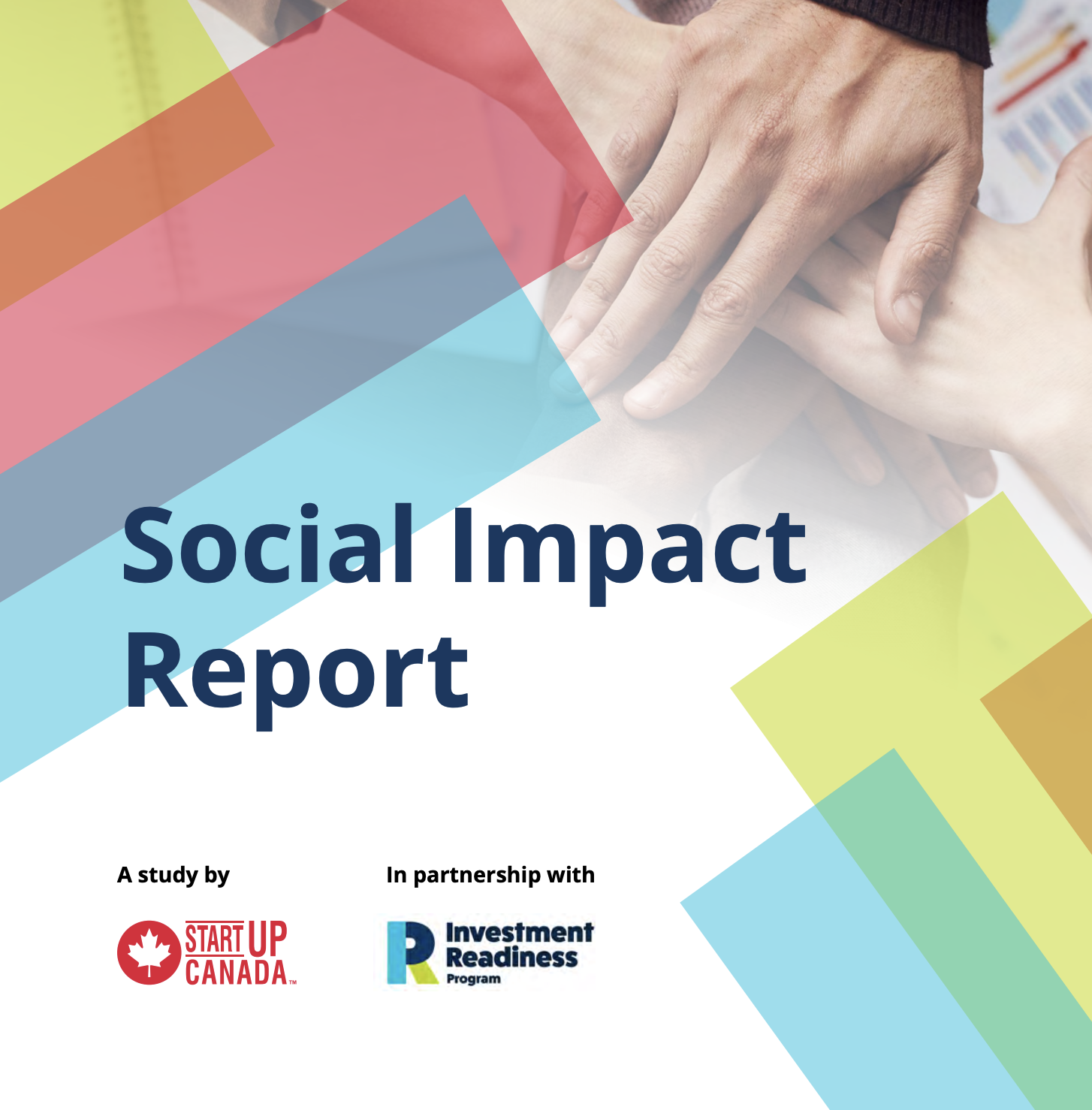Social Impact Report in Canada
The ESDC Impact Report was prepared using the findings of Startup Canada’s 2019 Canadian Entrepreneurship Census—responses from a sample of more than 250,000 members (with 514 respondents and a confidence interval of 95% with a margin of error of 1.96).
Startup Canada is the national rallying community and voice for Canada’s 3.5 million entrepreneurs, and as such was the perfect partner through which to discover insights related to the Investment Readiness Program in support of social entrepreneurs with over $800 million invested in training, mentorship, funding, and resources to scale-up social and environmental impact.
The following is an Executive Summary of the ESDC Social Impact Report.
Mindsets and Motivations of Social Entrepreneurs
Through interviews with 12 of Canada’s leading social entrepreneurs, Startup Canada attained key insights on factors at the forefront of social entrepreneurs in Canada—the why and how of social enterprise across the country. Common themes included the belief in affecting systemic change, empowering consumers to believe they can affect said change by voting with their dollars and working together to tackle the difficulties present in the world, regardless of socio-economic backgrounds.
Social Enterprise Propensity of Canadian Entrepreneurs
Through the 2019 National Census, Startup Canada learned that 66% of respondents would consider aligning their business to an SDG, 54% would consider converting their business into a social enterprise, and 80% would consider partnering with a business or charity to advance social and environmental impact. That said, there also exists a large knowledge gap between entrepreneurs and their awareness of existing social finance opportunities—85% of respondents are not aware of these opportunities, however, 80% of respondents would be interested in learning more about them.
State of Social Entrepreneurs
Regarding the state of current social entrepreneurs in the country, Startup Canada recommends the following three courses of action to address their needs:
Increasing education and awareness of the existing supports for social entrepreneurship in Canada
Increasing business sense and awareness among impact-driven founders, who may have an overly idealistic impression of their business value and growth
Creating a robust and tiered ecosystem to meet social entrepreneurs where they are in relation to their business to connect them with the funding and resources that are right for their business
Budding Social Entrepreneurs
Based on the results of the census respondents, it’s evident the needs of budding social entrepreneurs are much the same as social entrepreneurs. Though it is disconcerting that regular and social entrepreneurs of all levels feel they need support in the same areas regardless of business stage, the conclusion is simple—support organizations and programs for social entrepreneurs need to take a uniform approach to help them. Additionally, and most impactfully, the current employment status of many of these social entrepreneurs indicates that they are not starting up by desire or inspiration, they are starting up by necessity.
Insights and Recommendations
Ultimately, the main insights and recommendations arising from this study can be distilled to the following 3 main points:
Address the desire of current entrepreneurs who want to know more about social entrepreneurship and social finance opportunities through targeted, relevant, and consistent communications from all IRP partners
Increase the business acumen and awareness of impact-driven founders who may have an overly idealistic impression of their business value and growth
Create a robust and tiered ecosystem to meet social entrepreneurs where they are, and connect them with the funding, resources, and training that is right for them and their businesses
Conclusion
As it stands, business-as-usual isn’t good enough anymore. Entrepreneurs and consumers globally know and recognize this, and as evidenced by this report there’s a large desire among Canadian entrepreneurs to learn more about existing opportunities for social finance and develop their businesses further. Additionally, the support given out by IRP partners across all stages of support for social entrepreneurs needs to be as agile as the businesses they serve—it is essential to have service that reflects those they are trying to serve, and in this case, it needs to be swift, all-encompassing, and consistent in delivery from coast to coast to coast.
Read the full Social Impact Report to learn more.

